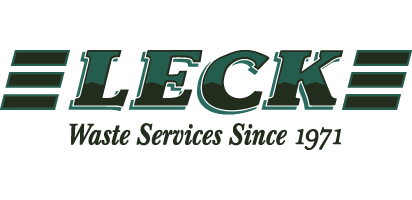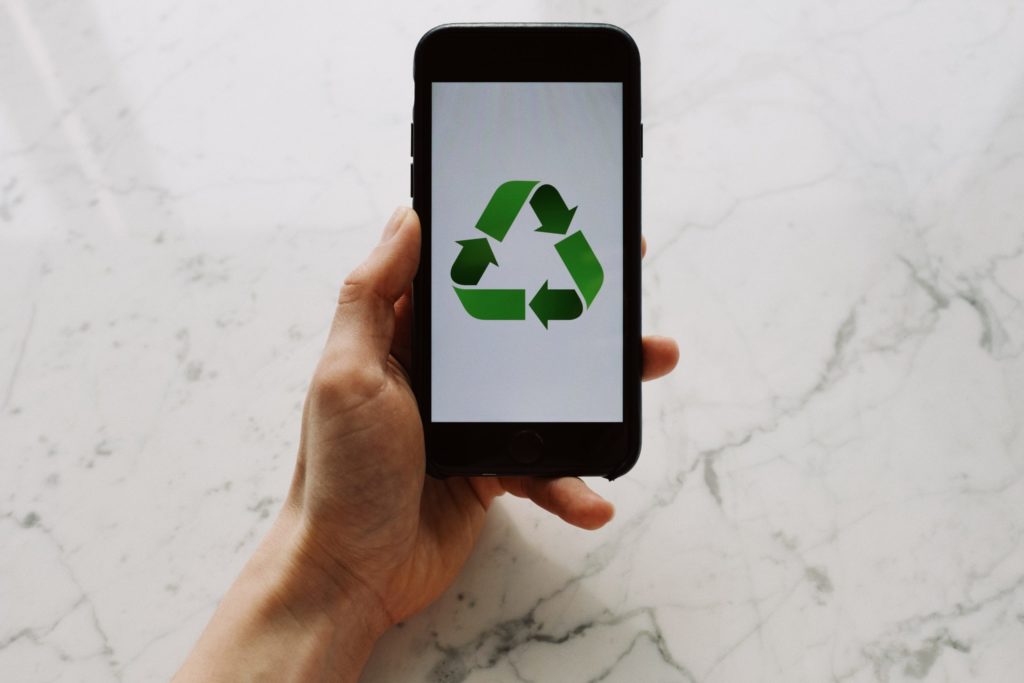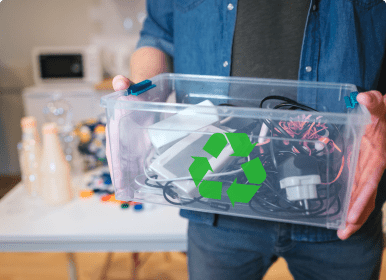Electronics Recycling
Leck Waste Services’ electronics recycling service helps improve the environment and protect health for all living beings by keeping toxic materials from being disposed of improperly.
Additionally, our electronics recycling, also known as e-waste recycling, service helps salvage valuable materials found in electronics. This effort reduces greenhouse gas emissions and pollution while saving energy and resources by diminishing the need to extract more raw materials from the Earth.
We serve Berks County, Bucks County, Montgomery County, Lehigh County, Philadelphia County in Pennsylvania; Hunterdon County, Mercer County, Burlington County, Camden County, Gloucester County in New Jersey and New Castle County in Delaware with our electronics recycling service.
Industries We Serve With Electronics Recycling
- Commercial Businesses, Offices and Retail Stores
- Hospitals and Nursing Homes
- Industrial
- Manufacturing
- Municipal, State and Federal Government Offices
- Original Equipment Manufacturer
- Restaurants
- Schools, Colleges and Universities
Electronics Recycling FAQs
-
How can recycling electronics help the environment?
The use of electronic products has grown substantially since the early 2000s. These complex devices are made of a wide variety of materials such as lead, nickel, cadmium and mercury, which could pose risks to human health or the environment if mismanaged at their end-of-life. Recovering valuable materials found in recycled electronics will reduce greenhouse gas emissions, reduce pollution, save energy and save resources by extracting fewer raw materials from the earth.
-
Why should we recycle our electronics?
Desktop and laptop computers, computer monitors, TVs and many other electronics often contain toxic materials such as lead, cadmium and mercury, which have the potential to negatively impact the environment if disposed of improperly.
-
Is there a law that requires the recycling of electronics?
Pennsylvania CDRA or Act 108 expanded the reach of the law, making it unlawful for citizens to dispose of covered electronic devices. Residents are required to use an electronic collection program to recycle their covered electronic devices.
-
What is a covered device?
Covered devices encompass desktop and laptop computers, monitors, computer peripherals and televisions marketed and intended for the use of consumers.
-
What items does Leck Waste Services accept for electronics recycling?
Some of the items we accept are: home electronics, stereo equipment, industrial equipment, wires, car batteries, plasma televisions, tube televisions, various adapters, cell phones, office phones, phone systems, circuit boards, radios, metals. We also accept common Electrical Appliances such as washers, dryers, stoves, air conditioners, refrigerators, microwave ovens, satellite dishes, space heaters, irons, hair dryers, vacuums, power hand tools.
-
Does it matter what kind of condition these electronics items are in?
Mostly any condition is acceptable to recycle electronics.
-
Why is there a fee for electronics recycling?
Leck invests time and resources in employees and equipment along with incurring recycling costs. Our electronics recycling fee starts at $25, with TVs starting at $75.
Hazardous Waste Disposal and Recycling
For more information about household hazardous waste disposal and hazardous waste recycling, view resources made available by the counties we serve.
Supplemental Electronics Recycling Information
What Is Universal Waste?
Universal waste contains potentially hazardous metals such as mercury, lead, cadmium, copper and other substances hazardous to human and environmental health. In general, universal waste may not be discarded in solid waste landfills.
The U.S. Environmental Protection Agency (EPA) has designated four specific waste streams as “universal wastes.” These are batteries, pesticides, mercury-containing equipment and lamp bulbs.
Leck Waste Services will work with your commercial enterprise to develop customized programs that provide reporting and regulatory compliance, with an emphasis on Zero to Landfill and footprint reduction.





